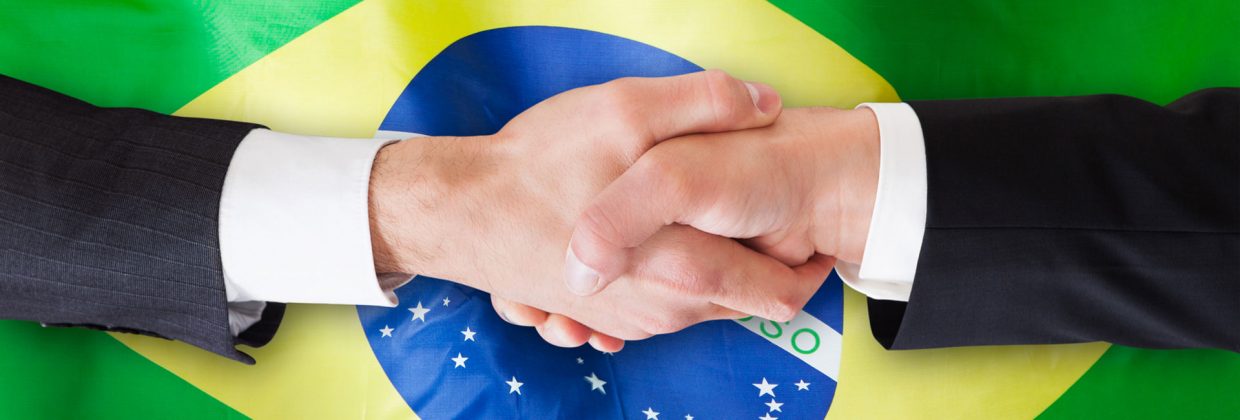Brazilian contract law and drafting style follow the European tradition, although this is changing as the two systems continue to converge.
Contracts may be, in some cases, governed by foreign laws and in most cases now parties to international contracts are free to choose a foreign forum to govern their disputes. Brazil is a party to the Vienna Convention for the Sale of Goods. Incoterms are commonly used in deals, yet not all of them can be used in Brazil.
Freedom of Contract
Traditionally, Brazilian law tended to limit the parties’ freedom of contract (pacta sunt servanda) – a lot more than in Anglo-American law. For instance, the principle of social function of contracts (função social do contrato) contained in Brazil’s Civil Code, has been applied to allow courts to intervene in the parties’ bargain where performance of the agreement may have a substantive economic effect in a particular region of the country.
With the passing of the new Economic Freedom Law, Brazil’s Congress enacted greater contractual freedoms. Now, in contracts between private parties, courts must apply the principle of minimum intervention and only interfere in the bargain of the parties in exceptional circumstances.
Note, however, that there are still laws specific to certain legal relationships – for instance, covering agents (commercial representatives) – that may be regarded by the courts as mandatory (and, thus, not permitted to be excluded via contractual terms) in some circumstances.
Importantly, the duty of good faith is implied in every Brazilian contract. This is an all encompassing duty that extends to negotiations and representations made prior to the contract being made. The principles and scope of the duty in Brazil are akin to those applicable in Canada (see C.M. Callow Inc. v Zollinger).
Moreover, Brazilian law the principles of force majeure, unforeseeability and hardship are also implied into all contracts. These can have major consequences to the outcome of contractual relationships if the parties choose not to address them in the agreements themselves.
Brazilian contract law is also tends to be formalistic: Brazilian parties will invariably ask for a person’s signature to be notarised and for every page in the contract to be initialled. Notarisation is obtained by attending offices called cartórios or tabelionatos, and you may have wait for in a room for full of people just to have a stamp placed beside your signature or on the photocopy of your document. However, formalism is not always present: unlike some jurisdictions, Brazilian courts do accept email and scanned documents as evidence, especially in consumer relationships.
Choice of Law
The parties’ freedom to choose the substantive law of a foreign jurisdiction needs to be considered based on whether the contract contains an arbitration clause.
Where a contract provides for disputes to be decided by arbitration (and the clause is valid and enforceable under Brazilian law), then the parties will be free to choose the law of any jurisdiction to govern their international contracts for as long as those laws are not against public policy under Brazil’s rules.
However, where the contract does not contain an arbitration clause, then the general rule is that if the parties concluded the contract in a face-to-face meeting, then the law of the jurisdiction where the contract was made will apply. On the other hand, if the contract is made other than in a face-to-face meeting, the law of the place where the offeror is located.
If the parties are to choose a foreign law to govern their obligations, it is recommended that arbitration be the chosen method of dispute resolution.
Choice of Forum
The general rule under the new Brazilian Code of Civil Procedure is that Brazilian courts will not have jurisdiction over disputes arising from international contracts where parties expressly chose a foreign forum to resolve their disputes.
For the parties’ choice of forum to be effective, the agreement must be in writing and the foreign court must be given exclusive jurisdiction to resolve the parties’ disputes arising from the contract. Moreover, the dispute must not relate to:
- consumer disputes where the consumer is domiciled or resides in Brazil;
- disputes over alimony where the creditor is domiciled or resides in Brazil or where the defendant has connections with Brazil (such as where the defendant has assets, income or “economic benefits” from Brazil;
- disputes involving real estate located in Brazil;
- succession disputes involving assets in Brazil; and
- disputes relating to the distribution of assets in divorce, separation and de facto relationships.
Due to amendments that came into force in 2024, forum selection clauses will be subject to greater scrutiny by Brazilian courts – click here for further details.
If the plaintiff is to file proceedings before a Brazilian court under a contract that contains a clause providing for the dispute to be decided by exclusively a foreign court, the defendant must raise the jurisdiction point in the defence or otherwise the defendant will be deemed to have waived its rights. However, the court may find that the choice of forum is abusive and treat it as unenforceable even before the defendant is served. If the court does so, the court file we will be sent to the court where the defendant is domiciled.
Choice of forum is a particularly important matter and should not be taken lightly. This is especially relevant as Brazilian law does not provide the stay of disputes based on the doctrine of forum non conveniens. This means that litigants may be faced with having to deal with concurrent proceedings in Brazil as well as in a foreign jurisdiction, with very high costs and uncertainties.
Vienna Convention for the Sale of Goods
Brazil ratified the Vienna Convention for the Sale of Goods on 4 March 2013 (Decree 8,327/2014), and it came into force on 1 April 2014. Therefore, care should be taken to expressly exclude its application if that is the parties’ intention.
Incoterms 2020 as interpreted by Brazilian customs authorities
The Brazilian system allows for any international terms of trade that are not regarded as incompatible with the Brazilian legal system. However, customs authorities still use the Incoterms for assessing import-related taxes, so customs brokers are often left with the task of trying to “match” the parties’ negotiated terms with the applicable Incoterm. When incorrectly applied, this “matching” process can lead to substantial tax overpayments (and obtaining refunds can take a long time).
Note that neither foreign companies nor non-resident individuals may clear goods in Brazilian customs. Therefore, DDP (Delivery Duty Paid) cannot be used in any Brazilian importing transaction. If the parties wish to have an Incoterm to their transaction, they can opt for either DPU (Delivered at Place Unloaded) or DAP (Delivered at Place), as both require that the importer carry out customs clearance.
Drafting Style
Contracts drafted by older Brazilian lawyers tend to use antiquated language, be short and contain general statements. Most Brazilian lawyers are still critical of agreements that follow the English drafting style, although in recent years due to the influence from foreign investors the more sophisticated Brazilian lawyers have begun to adopt many English drafting techniques and clauses to their local agreements.
Questions?
Contact me if you would like further information. My firm is ready to assist you.











 The site is managed by Fabiano Deffenti, a lawyer admitted to practise in Brazil and Australia, enrolled as a barrister and solicitor in New Zealand and licensed as an attorney-at-law in New York.
The site is managed by Fabiano Deffenti, a lawyer admitted to practise in Brazil and Australia, enrolled as a barrister and solicitor in New Zealand and licensed as an attorney-at-law in New York.